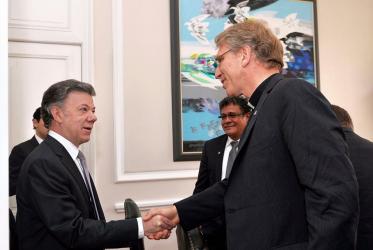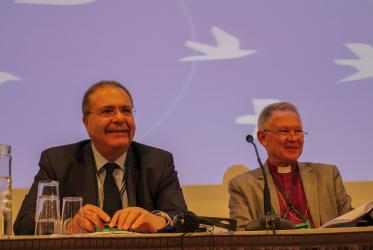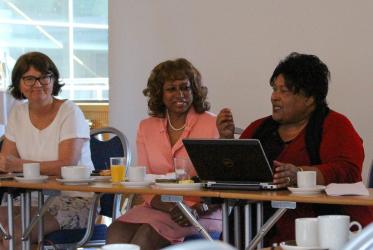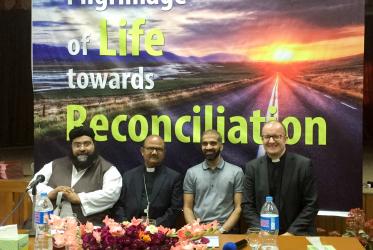Displaying 61 - 80 of 157
To be human is to be vulnerable…
14 July 2016
New Executive Committee members elected in Trondheim
28 June 2016
WCC welcomes ceasefire agreement in Colombia
25 June 2016
Is there hope for the Middle East?
25 June 2016
Church of Pakistan hosts Muslims, Christians
23 March 2016
Fleeing from – rather than to – a place
10 February 2016
WCC welcomes monitoring of ceasefire in Colombia
01 February 2016
At UN, anti-nuclear majorities challenge nuclear-dependent minority
05 November 2015
Conflict reporting fails women
06 October 2015









